Lavraki: We’ve got the Scoop, Bronzino is Tasty!
In Greece the European sea bass is called lavraki, it is also a term Greek journalists use when they snag an exclusive story, referring to how lucky you are if you catch one. If you get a chance, you’d be lucky to taste one. In France they’re called loup or bar. The Spanish call them robalo, northern Italians call them bronzino and elsewhere in Italy they’re called spigola. Marketed in the U.S. as bronzini or bronzino—they’re widely distributed from Norway to western Sahara, the Meditteranean and Black Seas—these fish are loved wherever they’re found and have been since early Roman days.
Due to intense fishing pressure, wild stocks have dwindled worldwide and the price of available wild bronzino is astronomical. Fortunately, the cultivation of these European favorites has been evolving for a couple thousand years; from the ancient times of trapping them in lagoons to fatten them up, to the pioneering Israelis, French and Greeks—who in the ’60s mastered the farming techniques that enabled the European bass to become the second biggest in production of farmed fish in Europe next to salmon.
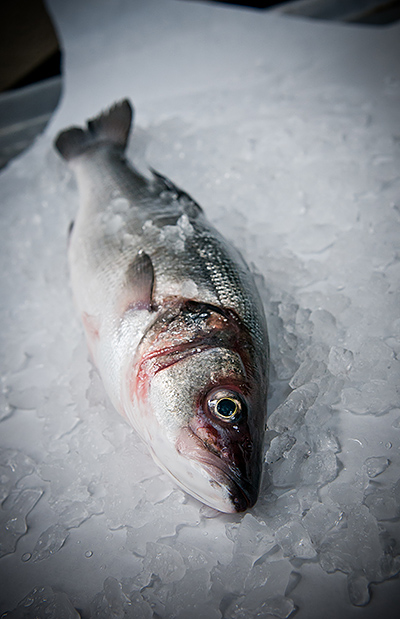
Bronzini
To many people, “farmed” is a dirty word when it comes to fish. There’s been a lot of negative press in the U.S., mainly about salmon farming but just the word has developed a negative connotation. A lot of the criticism is justified but as farmed fish and shellfish approach (and may have already passed) 50 percent of total worldwide consumption, I think we have to accept the fact that fish farming will play an important roll in the feeding of the world. In his book, Four Fish, Paul Greenberg paints a pretty well balanced picture of how Aquaculture and our last wild caught food source will coexist in the future with better technology and management.
Our market still specializes in wild caught fish but we do sell a few good quality farmed fish like salmon, rainbow trout, tilapia, and I’ll tell ya, our Greek lavraki (bronzino) is really a great fish! We love whole fish that are small enough to handle on a grill, to fit in a steamer, a pan, or wrapped in parchment paper. Wild native fish of manageable size like snapper, porgy, black bass and the close relative of bronzino—striped bass—are all wonderful, but not always consistent in size and availability.
The bronzino have a bone structure that’s easy to navigate, a buttery texture and a sweet delicate flavor. It’s a perfect fish for a whole fish novice and, like the yellowtail snapper, you slowly enjoy every part from the cheeks and collar on down.
My first dining experience with these fish was in a fishing village in the Basque region of Spain. Overlooking a beautiful little harbor watching the fishermen mending their nets, the colorful boats, even a big fishing vessel right off shore with small tenders bringing in, I think, anchovies. We were in heaven. After sitting down at a small outdoor café that was grilling fish we ordered a couple of simple whole grilled robalo (bronzino) a nice local wine, bread and a delicious salad. Absolutely fantastic! After assuming that the robalo was caught by the fishermen we were watching below us, I was a bit surprised to find that the fish we had just eaten for dinner was farm raised, probably in Greece. I still thought it was fantastic and it was a meal we’ll never forget.
Grilling is a fine way to prepare bronzino but the great thing about this fish is its versatility. Baking, steaming, sautéing, salt encrusted; just about any cooking method works with this fish. Last night we steamed a whole bronzino en papillote (steamed in parchment paper) and it was fantastic. A super healthy dish using fresh herbs, tomatoes, garlic and pimentos with all the goodness and flavor sealed inside the pouch!
Bronzino with Tomatoes & Herbs En Papillote
Grilled Bronzino with Rosemary, Garlic & Lemon
Dave’s Aroos Ala Al Fahm or Grilled Sea Bass (Bronzino)

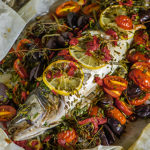 Next Post
Next Post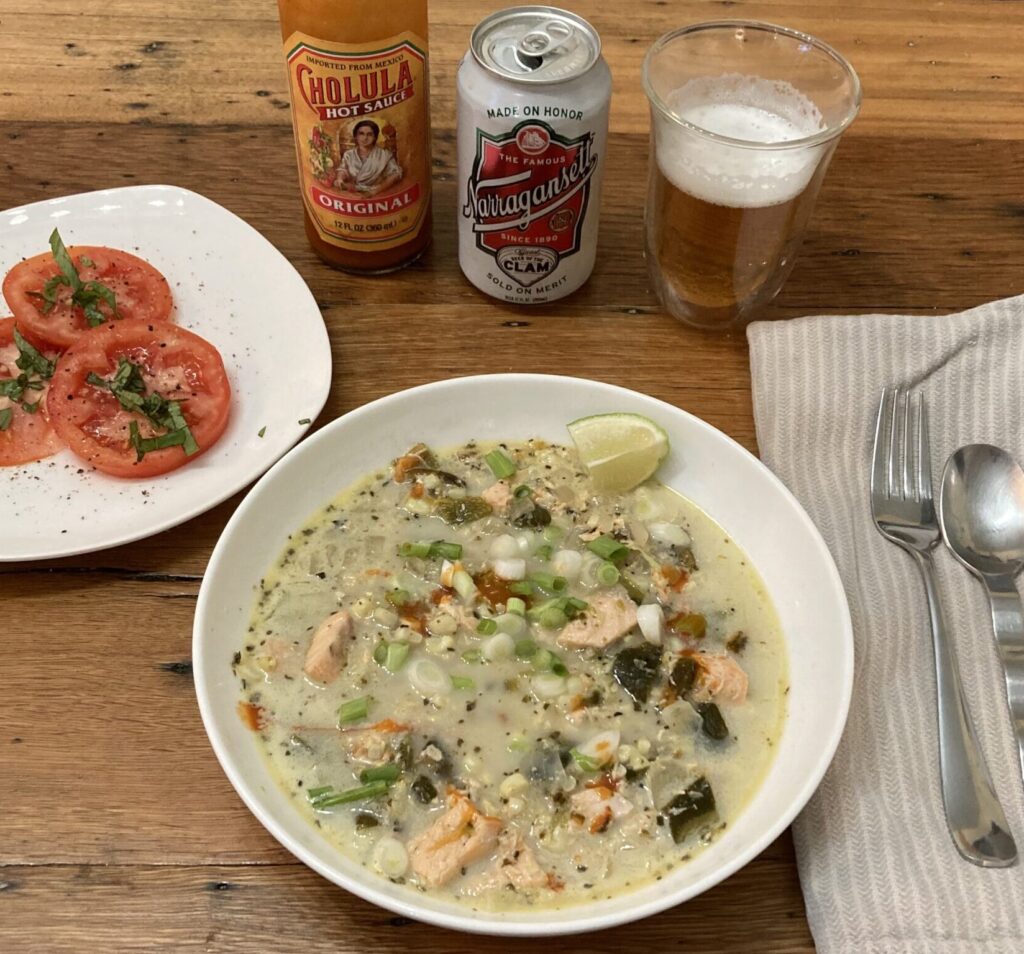
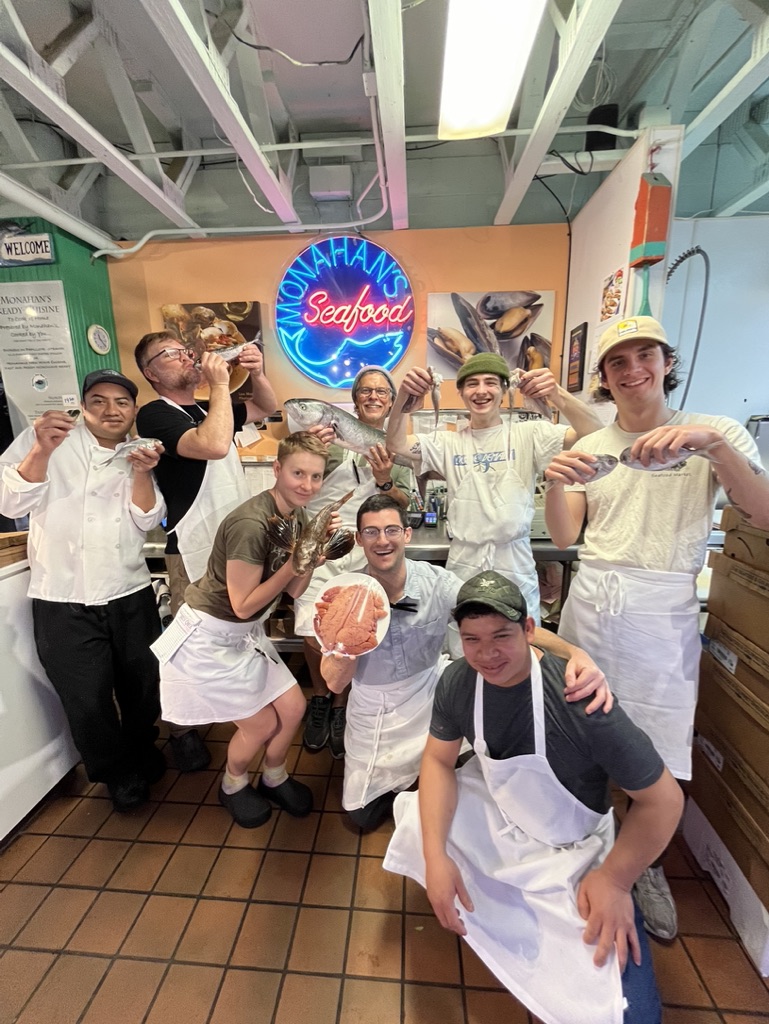
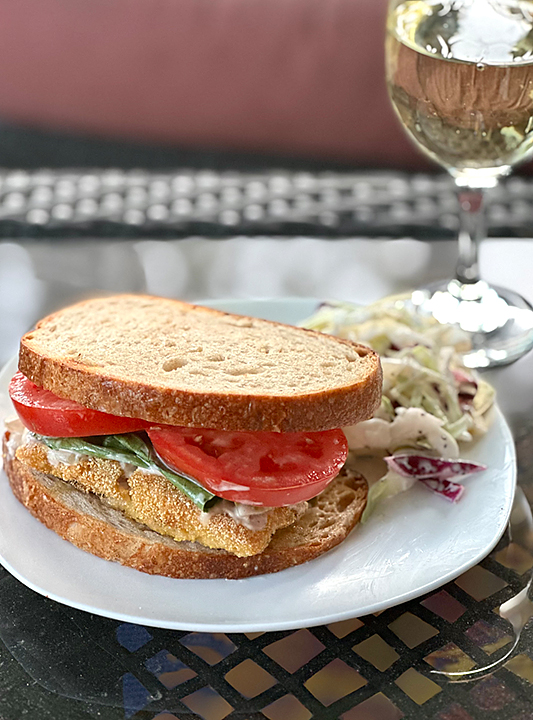
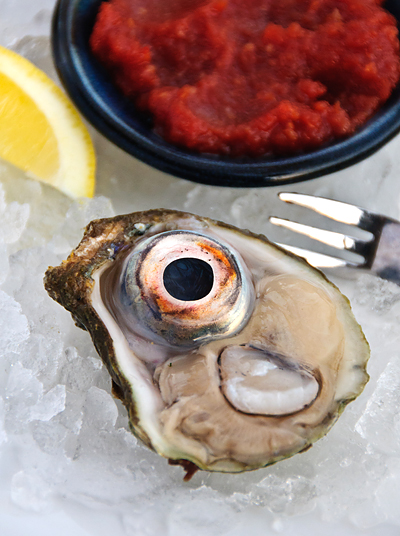
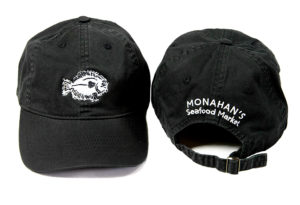
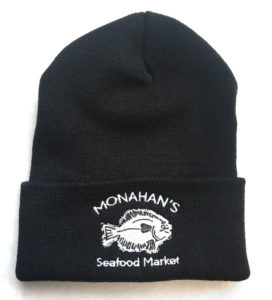
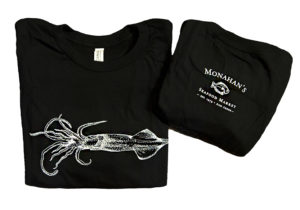

Also you forgot to mention in Turkey its called Levrek and its one of the most popular fish. Turkey is part of the important farming countries regarding Bronzini (European Bass).